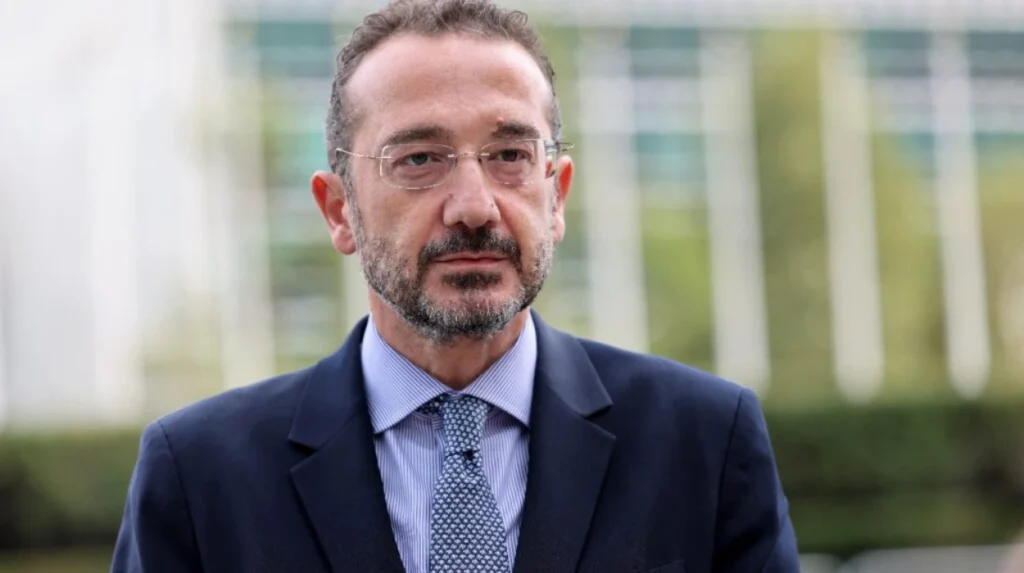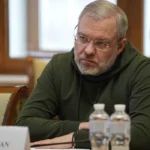Georgia’s pursuit of visa-free travel to the European Union has been a long-standing goal, symbolizing the country’s commitment to European integration and reform. The process involved comprehensive reforms and close cooperation with EU institutions, culminating in the European Commission’s positive assessment of Georgia’s readiness for visa liberalization. The expectation was that the European Parliament and the Council of the EU would approve the visa-free regime, allowing Georgian citizens to travel freely to the Schengen area.
Accusations by Former State Minister David Bakradze
David Bakradze, Georgia’s former State Minister for European and Euro-Atlantic Integration and current Ambassador to the United Nations, recently testified before the Parliament’s Temporary Investigative Commission on June 23, 2025. He claimed that during the critical period leading up to the EU’s decision on visa liberalization, members of the opposition United National Movement (UNM) actively lobbied against granting Georgia visa-free travel.
Bakradze stated, “While preparing for the 2015 Association Council, our main priority became clear. By then, Georgia had already carried out all the necessary reforms. Our primary goal was visa liberalisation. We worked on this, implemented the reforms, and presented them at the Association Council, where these issues were fully discussed.” He emphasized that the government engaged in high-level meetings with EU officials, members of the European Parliament (MEPs), and policy experts to secure support for the visa-free regime.
However, Bakradze accused UNM representatives of traveling across Europe simultaneously, lobbying against the visa liberalization for Georgia. He described the reaction of EU officials as one of bewilderment, noting that “it was completely incomprehensible and inexplicable how, at that time, a leading opposition party, which claimed to support Georgia’s pro-European path, would undermine such an important decision for the country’s citizens purely for its own political goals.” This accusation highlights a deep political rift within Georgia regarding the country’s European integration efforts.
Political Context and Reactions
The accusations come amid ongoing political tensions between the ruling Georgian Dream party and the opposition UNM. In the past, similar claims have surfaced. For instance, in 2018, then-Parliament Speaker Davit Usupashvili mentioned that “one part” of the UNM was lobbying in the European Parliament to delay the decision on Georgia’s visa liberalisation. Usupashvili explained that although UNM publicly supported visa liberalization, behind the scenes, some of its members pursued partisan interests that conflicted with the country’s broader goals.
UNM has repeatedly declared its support for visa-free travel for Georgia, but critics argue that internal political maneuvers may have complicated the process. The political landscape in Georgia is marked by accusations of undermining efforts for European integration, with opposition and ruling parties blaming each other for setbacks.
EU’s Response and Broader Challenges
The EU’s stance on Georgia’s visa liberalization has been influenced by multiple factors, including democratic standards, regional geopolitical situations, and migration concerns. In December 2024, the European Commission proposed suspending visa-free travel for Georgian diplomats and officials as a response to democratic backsliding and repression of peaceful protesters and independent media in Georgia.
The Commission stated that “compliance with fundamental rights such as the effective implementation of anti-discrimination policies is a crucial requirement to be granted visa liberalisation.” This measure, however, did not affect ordinary Georgian citizens who continue to benefit from visa-free travel.
Additionally, the Prime Minister of Poland, Donald Tusk, stated in June 2025 that Poland is lobbying EU member states to end or limit visa-free travel for Georgian citizens, citing concerns over democratic backsliding and migration risks. Tusk clarified that this is part of a broader EU-wide approach to countries that do not uphold democratic standards, not singling out Georgia alone.
Historical Parliamentary Efforts and Political Divisions
The Georgian Parliament has previously attempted to present a united front on the visa liberalization issue. In December 2015, a parliamentary statement calling on the EU to lift visa requirements for Georgia was adopted, but disagreements over wording prevented unanimous support. UNM MPs proposed including calls on the government not to take actions that could hamper the visa liberalization process, reflecting underlying mistrust between political factions.
Despite these divisions, the statement recognized that
“EU integration is the firmly expressed will of the large majority of the people of Georgia and that this course of action has no alternative for the secure, sustainable and democratic development of our country.” However, accusations persisted that UNM was involved in lobbying efforts that contradicted their public stance on visa liberalization.
The recent testimony by David Bakradze accusing the UNM of lobbying against Georgia’s EU visa-free travel bid sheds light on the complex interplay of domestic politics and international diplomacy in Georgia’s European integration process. While the government worked to meet EU requirements and secure support, opposition actions allegedly aimed at political gain may have complicated these efforts.
These developments occur against a backdrop of EU concerns over democratic standards in Georgia and broader geopolitical challenges affecting the visa liberalization process. The situation underscores the fragile nature of Georgia’s path toward deeper integration with the EU and the critical role of political unity in achieving such national goals.







